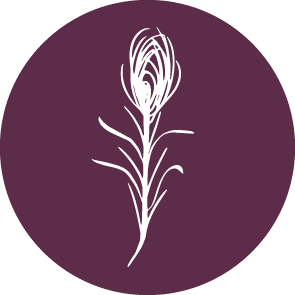Did your schooling cover Indian Survival Day? No? In that case...
Have you heard of Indian Survival Day? If not, stop reading and swipe through these slides...
All caught up? Good.
We're moving into nuance and complexity with Avita as she reflects on her identity as Indo Caribbean, what that has meant for her experience with other South Asians and how that ties into this particular moment in the Yoga world. She doesn't shy away from the many layers, contradictions and intersections that come up as we explore identity, colonialism, and culture. We're sharing her full piece with you below...
The Space in Between by Avita Bansee
Pink hair, electric guitars, raves. Almost intentionally guaranteeing my style would ensure my exclusion. I fell into being an outsider by force and by choice. You know the pleasure of being defiant? Visibly different from my West Indian cousins and my Canadian friends, I grew up in the space in between.
Separated thousands of miles away from the Caribbean, I attended a mostly white French school in Montreal. I rarely spoke there, my accent and pronunciation policed. I came from an English speaking household and practiced French to myself in the shower or in bed. I eventually learned to speak like the others, undetectably Anglo but never French. The space in between.
Growing up, South Asian friends and acquaintances often pointed out my family’s incorrect pronunciation and the misspelling of our name, Bansee. Were we seen as Americanized or culturally void as Caribbeanites? This unsolicited help was offered with kindness, with just a pinch of disdain. Never with recognition that I come from a culture that created something new out of oppression, destruction, survival and resilience, not something that needs to be corrected. A people from the space in between.
What does it mean to be Americanized? America is seen as culturally less than. My people from the Caribbean are seen as less than. Diminished, excluded and denigrated by the descendants of the same lands our ancestors are from because we are Americanized and do not have access to performing what has been defined as authenticity, as true culture.
Today, as the wave to honor yoga’s roots gains traction, I am left wondering what to do with my American/Trinidadian pronunciation mash up? Do I erase my hybrid identity? I feel policed again. Proper Sanskrit pronunciation has become another way to measure cultural authenticity. It reifies the denigration of Indo-Caribbeans in South Asian communities. Our existence, authenticity, purity and value have always been questioned and doubted.
This wave also allows white people who hold proximity to power and privilege to perform cultural authenticity and veil it as cultural respect, without ever questioning the racism, classism and colonialism that gives them access to the authentic. A performance that can be worn as progressive. And without questioning this, they reify colonialism by continuing to occupy the space of the knowledge holders. The epistemological privilege Imperialism is founded on.
Without an anticapitalist, anticolonial and antiracist lens, authenticity narratives are harmful. And they are also giving way to a dominant narrative where my pronunciation is yet again being policed. Unsolicited corrections and comments. My response is that I will not be erased. I am Caribbean. I am South Asian. I am Americanized. I live in the space in between.
We're grateful for Avita's willingness to claim the space in between. There's a lot to digest here. What strikes you most about this piece? Write us back and let us know what hit you and where you are in your own exploration of identity.
Warmly,
Tejal
P.S. Looking for even more on Indian Survival Day? Check out Fi's reflection on the history of her family’s journey from India and beyond and how that ties in with her experience and identity

